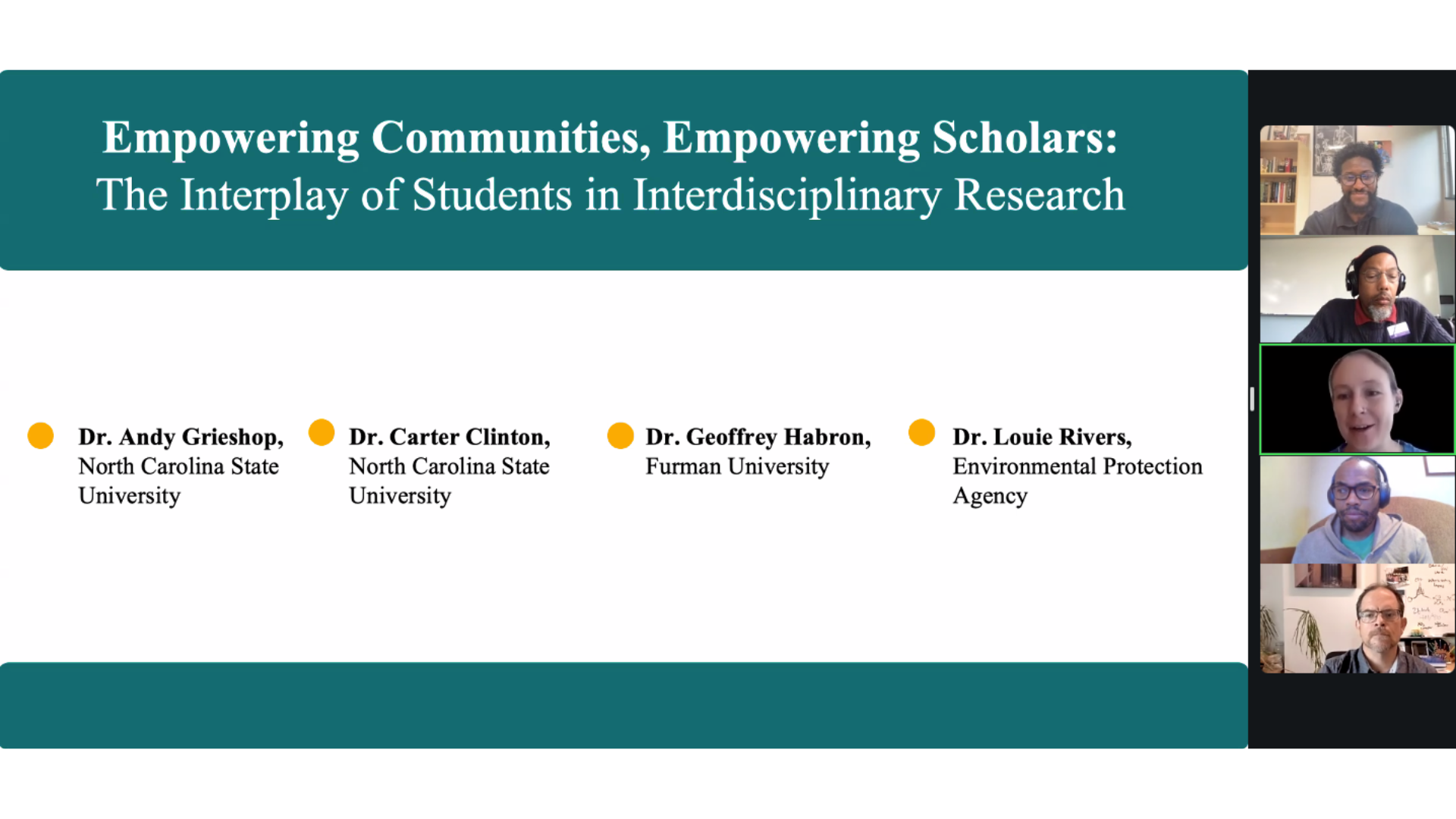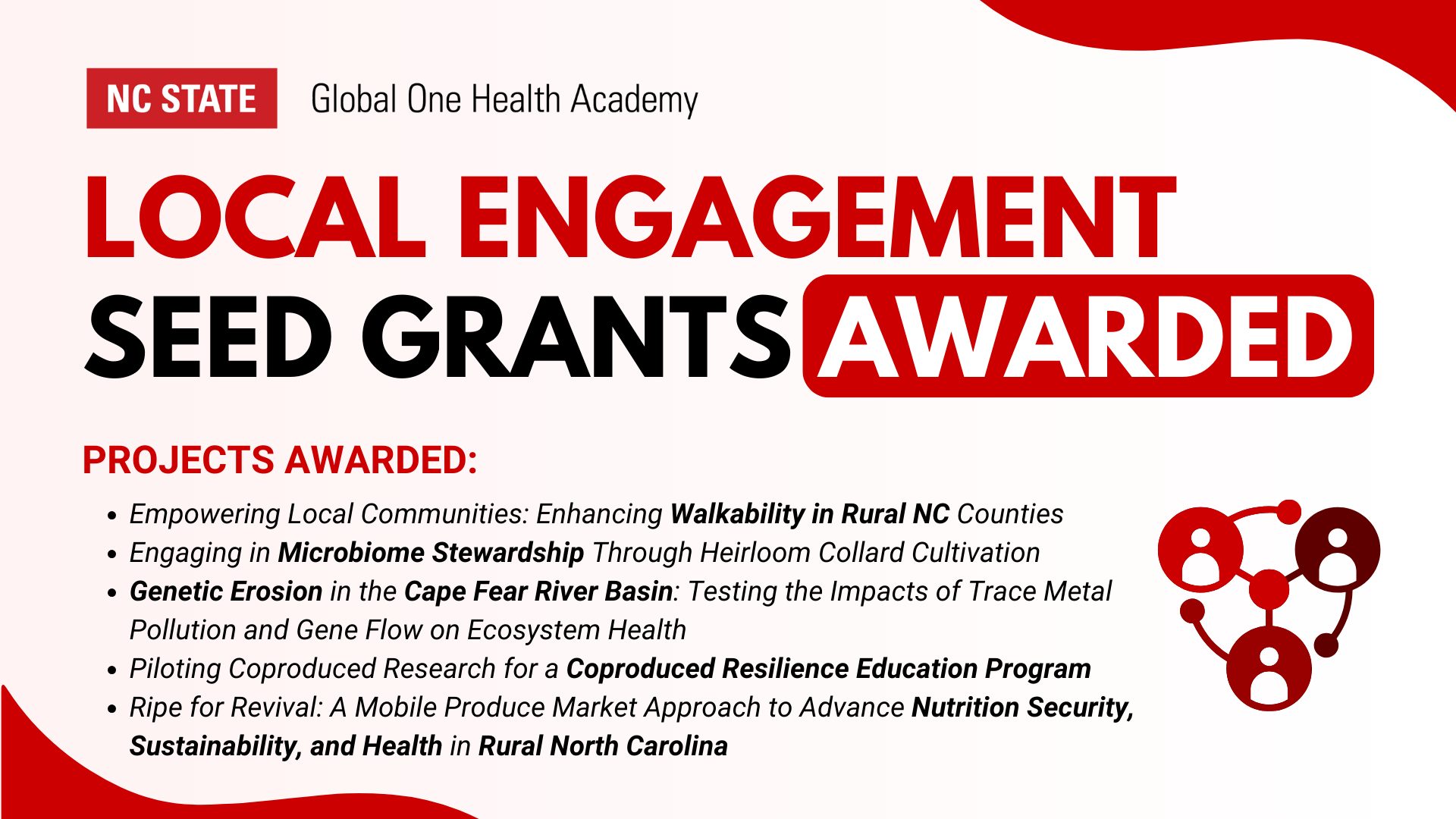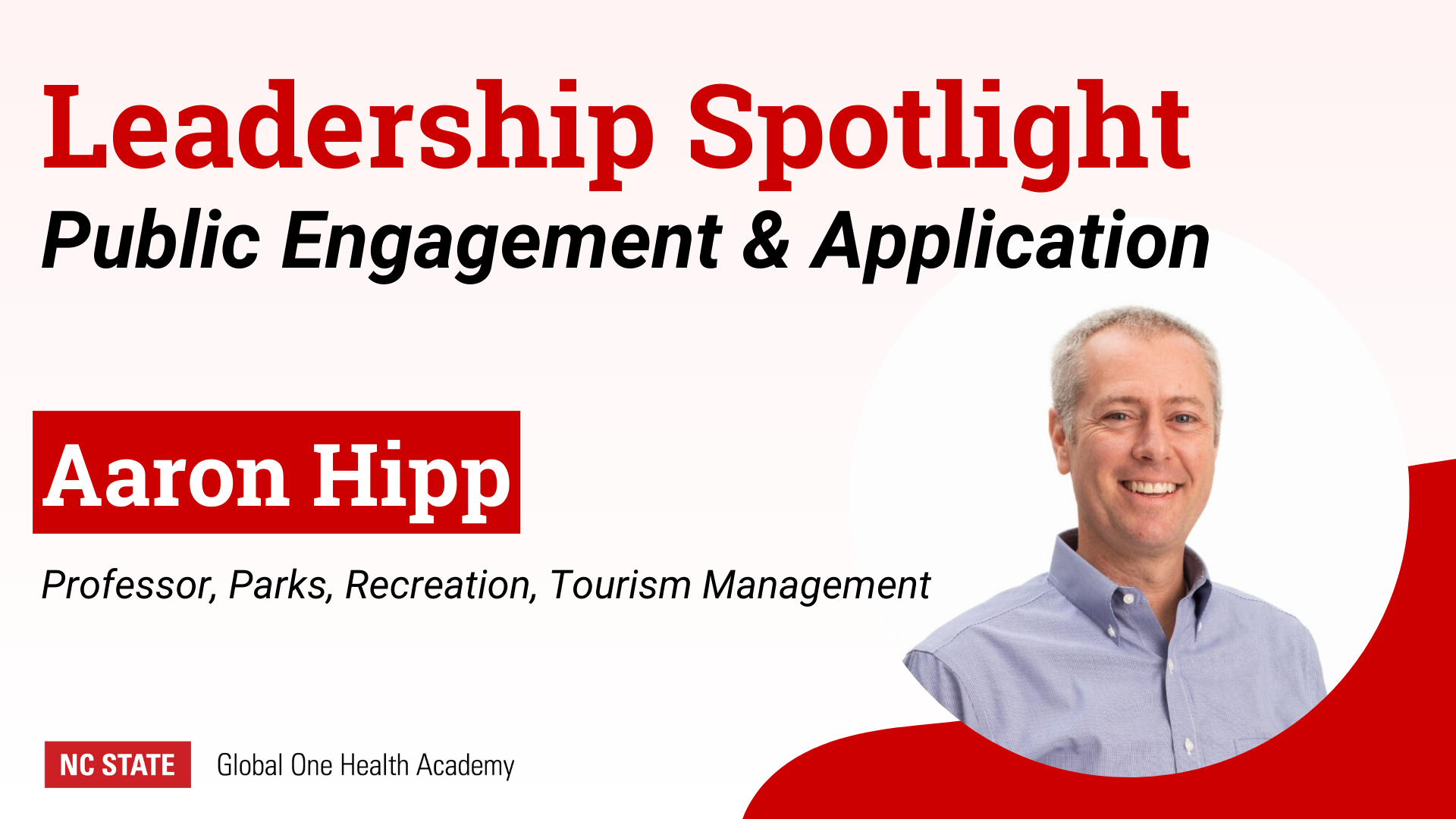GOHA Co-hosts Community Engagement Webinar with C3HE

On Tuesday, April 30, the Global One Health Academy teamed up with the Carolinas Collaborative on Climate, Health, and Equity (C3HE) to host a webinar, Empowering Communities, Empowering Scholars: The Interplay of Students in Interdisciplinary Research.
Scientific research has transitioned away from one-way communication and toward a two-way interactive dialogue. Rather than prescribing needs and solutions, scientists are now engaging with communities to determine their needs. By developing this partnership with the end-users, scientists can produce research that is actionable and applicable to society.
The “Empowering Communities, Empowering Scholars” webinar held in April is part of C3HE’s Spring 2024 Webinar Series on Community Engaged Research. During this event, Global One Health Fellow Emily Floess moderated a robust panel discussion consisting of faculty affiliated with C3HE and GOHA: Andy Grieshop, PhD, Carter Clinton, PhD, Geoffrey Habron, PhD, and Louie Rivers, PhD. Panelists discussed practices around community-engaged research and shared insights on how to successfully integrate students into this type of scholarly venture.
During the webinar, Emily posed the following questions to which the panelists they offered their expert advice and relevant experience.
- What is community-engaged research?
- How do you build partnerships to start a community-engaged research project?
- What opportunities do your organizations or institutions offer for students to engage in research?
- What are the skills that you’ve gained in working with community partners on co-produced research?
- For students and early career professionals interested in getting involved in community-engaged research, what advice can you offer?
A common theme present throughout the discussion was that communities are heterogenous. In other words, there is not a one size fits all approach to engaging the community in research. Panelists expressed the importance of acknowledging community culture and meeting them where they are at. By building a relationship based on respect and trust, science can inform real on the ground solutions to the problems that affect communities.
Missed the webinar? Watch a recording below!
- Categories:


